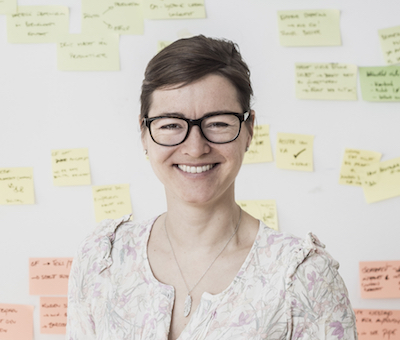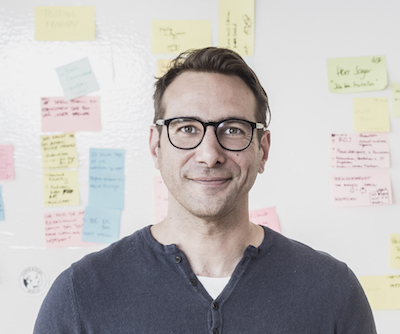tiefenschaerfe - a comprehensive Design Thinking network established 2009
tiefenschaerfe - a Design Thinking journey
Surprisingly, the founders of tiefenschärfe, a berlin based consulting agency, are not designers. Robin Mehra holds a Master’s degree in Economics, while Bettina Michl has a Master of Arts in Political Science and an additional MBA. Considered out of the box thinkers from their former colleagues they met at HPI School of Design Thinking during its first year of existence. Thus, pioneering the use of an approach that combines qualitative research methods from the sociology and anthropology, cognitive frameworks from biology, psychology and business as well as modeling techniques from liberal arts, design and even improvisational theater with the optimistic, experimental and collaborative mindset of Silicon Valley. Mentored by IDEO during that year, they had the chance to learn from the very same company that took the thinking of designers way beyond tangible products into creating experiences and designing services.
Concepting and orchestrating different executive education formats during the initial starting phase of HPI Academy they gained front end experience of early adopters within the German market environment. Exploring touchpoints and frictions of design thinking mindset within their organizational practice and supporting teams implementing their efforts.
During more than 3 years of teaching experience at the HPI School of Design Thinking in Potsdam, Germany, they build up extensive understanding in translating the reasoning of this approach into the language of over 80 different disciplines as divers as microbiology, software development and mechanical engineering to students from 30 nationalities.
As program managers for the HPI Academy they sensed the excitement but also the challenges for project partners to incorporate this potentially disruptive approach to innovation. Establishing the governance of this collaborative, iterative creative process as one stronghold of tiefenschärfe. The other, being the enabling and facilitation of teams with the help of 20 coaches and a vast network of supporting services from visual facilitation to the set up of creative team spaces and systemic coaching.
Expertises within our network
Engineers7
Designers 10
Physicians 3
Humanists 8
Economists 5
Computer scientists 6
Architects4
Social scientists 5
Founders

Bettina Michl
-
Founder

Robin Mehra
-
Founder